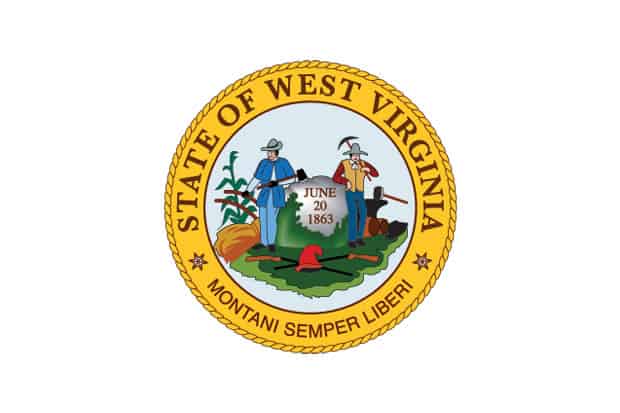West Virginia recently joined the ongoing effort to usher in online gambling. Several Democrat legislators introduced a bill into the West Virginia House of Delegates that would legalize online poker rooms, casinos and racebooks for West Virginia residents. The bill—HB3067—would establish licensing and regulations for the market that its supporters feel could stimulate the state’s economy.
West Virginia isn’t the only state that has pushed for state-regulated legal online gambling, with Nevada, Delaware and New Jersey already offering state based USA online gambling opportunities to residents and visitors to their states. This option wasn’t always available to states, as online gambling had previously been overshadowed by a federal law. The Federal Wire Act is a law that was passed in the early 60s and dealt with all forms of gambling over wire transmissions. As technology developed, the law’s reach was called into question regarding the Internet and online gambling. The Department of Justice issued a Formal Opinion in 2011 stating that the Federal Wire Act only applied to sports betting, specifically banning US based online sportsbooks from accepting wagers. This ruling allowed for states to choose whether they wanted to establish online casinos and poker rooms, an option that not many states have capitalized on thus far.
This freedom of choice when it comes to online gambling doesn’t allow for a completely unrestricted market where anyone can operate an online casino. In West Virginia’s case, only the four racetrack casinos (or “racinos”) would be allowed to obtain licensing for online gambling. These licenses aren’t cheap either, costing $50,000 and including a 14% tax on profits. This tax percentage would go towards the state economy and could be directed toward any state endeavor, such as roads, education, etc. These casinos have the option of working with outside companies that provide gambling technologies, such as RNG (Random Number Generator) technology. RNG technology ensures genuine randomness in game play and results for both online casino games and online poker rooms.
While some other states (most notably New Jersey) have successfully launched online gambling sites, the fact remains that the sites are exclusive to the state they operate in. West Virginia’s bill has an option for them to partner with other states that have legalized online gambling. Delaware and New Jersey have already established an interstate gambling pact for online poker that allows them to share their customer base and provide access to their services for players in either state.
Sports betting would not be allowed under this bill, though West Virginia has put together legislation that would allow for some style of sports betting. Another federal law, known as the Professional and Amateur Sports Protection Act (PASPA), bars the state from having any sort of sports betting, but there are enough states fighting against it to believe something could change soon in regards to the law. For now, the racinos should be content with their gambling capabilities should HB3067 pass.
If West Virginia is successful in this endeavor, it would set a precedent for the online gambling industry in the US, as more states seem to be becoming more accepting of it. Both the state legislators in support of this bill and the racinos that would be able to get licenses believe that online gambling will revitalize the state. It may take some time to get going, as there is a learning curve associated with online gambling that residents would have to deal with, but nothing worthwhile ever comes easy. The emergence of state regulated online gambling in West Virginia would enhance the range of options currently available to residents already enjoying legal online gambling from licensed offshore gambling sites that accept West Virginia players.

